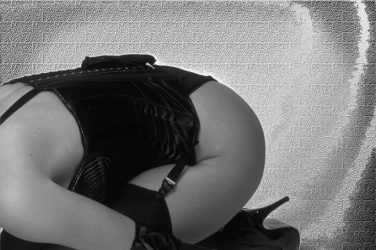Prompted by a recent trip to the cinema, Jonas Ekblom wonders why and how powerful women intimidate men.
The Favourite is a new historical drama slated to be released in the UK on January 1, and in the rest of Europe later this spring. The 18th century period drama offers everything you might want from a film like that: lesbian sex, power, intrigue and lavish costumes in one package, sprinkled with 17 rabbits (don’t ask). A thing it doesn’t sport is prominent men – because what man would be attracted to a powerful woman?
The film tells the true(ish) story of how two women – Abagail Hill and Sarah Churchill, Duchess of Marlborough, played by Emma Stone and Rachel Weisz, respectively – are fighting to be the favourite of Queen Anne, played by Olivia Colman. Court favourites were informal roles in old courts, and the favourites were often rumoured to have more than platonic relationships with the regent. The Favourite takes this and runs with it.
Abagail Hill arrives at court as a lowly relative of Sarah Churchill, but does not take long to ingrate herself with the Queen and earn her trust, eventually usurping Churchill as the Queen’s favourite. She also replaces Churchill as the Queen’s go-to sapphic lover. But very little about the sex is romantic or particularly steamy, it rather oozes with a lust for power and being close to it, from the two aspiring favourites.
It should be said that The Favourite, just like any historical movie, has a veneer of a modernity. New York Magazine talked to a Columbia University professor who studies the history of sexuality, Julie Crawford, who argues that it’s impossible to talk about sexuality and sexual identity the way we do it today: “There wasn’t a radical separation between what we recognise as sexual intimacy and the other kinds of bodily intimacy with which people lived at the time, particularly for elite people, who had women who literally undressed them and washed their vaginas.”
She furthermore explains that even in relatively modern times (such as Queen Anne’s 18th century), marriage was not necessarily the monogamous institution of today, and that “pre-modern women” were more sexually fluid than today, where one often needs to peg your sexual preference to an identity.
But even the same-sex relationships in The Favourite are far from equal. The movie’s main driving force is the interplay between the three women, especially the struggle between Churchill and Hill. In the end both of these women realise that the actual control does not lie with either of them, but with the actual, formal, power: the Queen.
The film powerfully plays into a trope with a long history that powerful women must either be lesbian, overly mannish or simply neither subject nor object of lust

This struggle is shown as the film powerfully plays into a trope with a long history that powerful women must either be lesbian, overly mannish or simply neither subject nor object of lust: Elizabeth I of England and Catherine the Great of Russia being two other obvious examples. Catherine the Great had a lot of traits that were, and still are, coded as male: she had a long line of lovers during her life, and she singlehandedly made Russia into a great European power.
For a man, being powerful is seemingly inherently attractive. One example of this is aphrodisiacs catered towards male virility, spanning from rhino horns to saffron and tiger penises, all items making it clear that, if anything, getting an erection is expensive business. These aphrodisiacs are not necessarily about any actual erectile efficacy, but rather to show wealth, and wealth is shorthand for power. Saffron in particular has been a prominent symbol of wealth for hundreds of years.
But power does not have nearly the same heterosexual sex appeal if attributed to a woman. Catherine the Great’s sexual prowess became a source of ridicule; a long-lived (and debunked) rumour said that she liked to have sex with horses. Her power was seen as intimidating more than anything.
Traditionally male displays of wealth can be found in The Favourite. At the beginning of the movie Queen Anne bequeaths her (then) favourite Churchill a whole place, despite England being completely in the red due to an expensive war against France. When Churchill protests, Anne says she can do these things because she is the queen. A central detail is that the queen is not wooing a man, but wooing a woman. The men are conspicuously absent in The Favourite. Queen Anne lacks any appeal to the men in the film (who are, it should be noted, also mainly portrayed as blundering buffoons) – not even her power can seemingly appeal to them.

In more modern times, arguably the most powerful woman in Europe today, German chancellor Angela Merkel, is portrayed as remarkably asexual due to her power, as does similarly powerful women such as Theresa May or Hillary Clinton. The three sporting short hairdos and an affection to pantsuits, removing traditionally female coded superficial traits.
All three have also been rumoured to be lesbian at one time or another. Power is still a man’s world; power is associated with men, and if you are a woman wanting to take part in that, someone will, eventually also say you share another trait with the (straight) men in power: a lust for women. And since manliness is connected to power, many men are intimidated by women more powerful than them, since their “power”, and in extension, their manliness, would be lessened by the woman’s power.
The answer is clear: men need to get over their frail idea of masculinity. But before that happens, Queen Anne, as portrayed in The Favourite, has a good idea of how women in power can spend their time: racing lobsters and eating cake. Because, in the end, who needs men anyway?
Cover photo: Storm Crypt (Flickr); License: CC BY-NC-ND 2.0











Show Comments
Womenos
There have been attempts to explain the oppression of women in biological terms. For example, the sociologist Stephen Goldberg suggested that men are naturally more competitive than women because of their high level of testosterone. This makes them aggressive and power-hungry, so that they inevitably take over the high-status positions in a society, leaving women to the more subordinate roles.
Comments are closed.